Chinese author pens groundbreaking theory of Chinese voyages to the Americas before Columbus
en.ptnet.cn | Updated:2025-10-30 | Lin Kongbo, Stephanie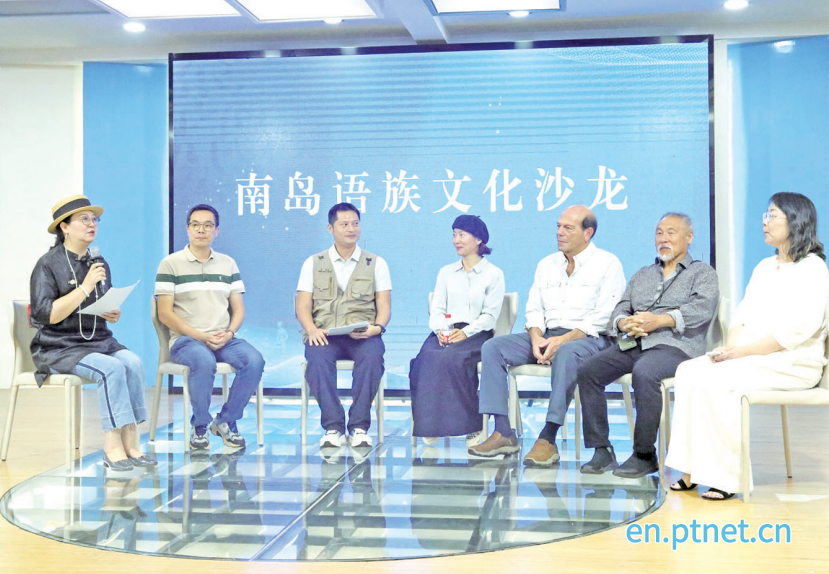
Dan Bagu (4th from the left) engages in a discussion with guests focusing on the culture of the Austronesian-speaking peoples.
Was the New World discovered by Chinese explorers long before Christopher Columbus? This question took center stage at a recent book launch on October 22 in Pingtan, China, for They Believe: The Chinese Arrived Before Columbus. The work, penned by renowned Chinese author Li Bing under the pseudonym Dan Bagu, explores this compelling theory. The island of Pingtan, a pivotal location for researching the spread of the Austronesian peoples, provided a fitting backdrop for the discussion.
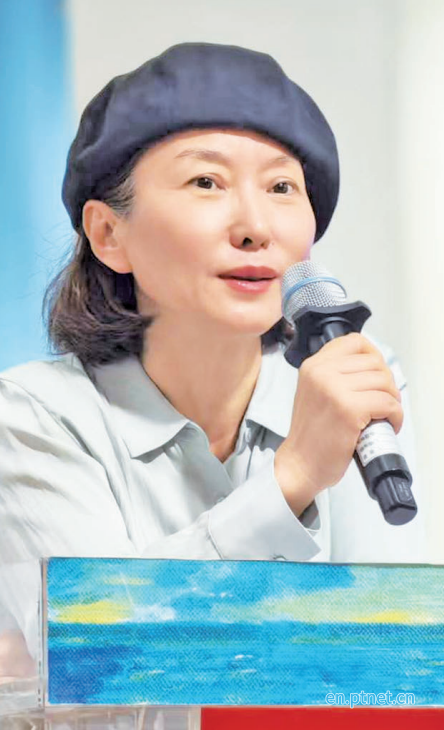
Li Bing
Li, a national first-class writer and former journalist now affiliated with the Chinese National Academy of Arts, devoted two years to the nonfiction work. The book draws on interviews with over a dozen Western researchers and explorers who advocate the theory that Chinese navigators arrived in the Americas earlier than Christopher Columbus—who reached the continent in 1492. Speaking at the event, Li emphasized the book's purpose is not to prove the theory as fact, but to inspire readers to challenge conventional historical narratives.
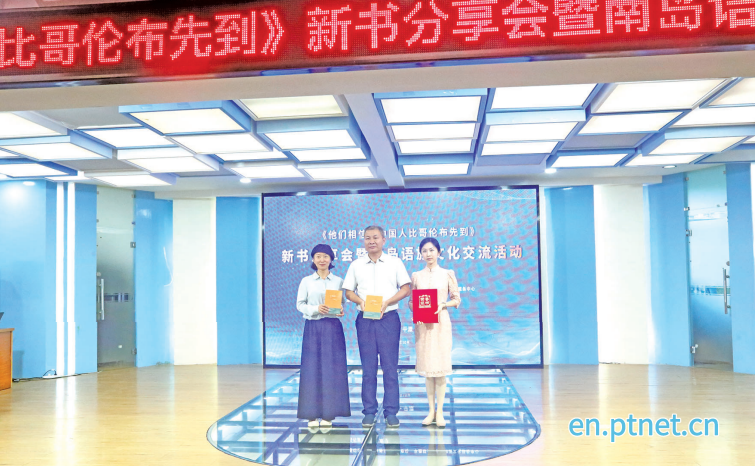
Scene from the book donation ceremony
"The book doesn't seek to overturn mainstream history," Li told attendees. "Instead, it shares the stories and evidence gathered by these researchers to make people think—history isn't just what's written in textbooks. Its vitality lies in constant questioning."
One of the researchers highlighted in the book, American explorer Steve Elkins, attended the event to support the work. Elkins shared evidence he said backs the pre-Columbian arrival claim, including rock carvings that resemble Chinese characters in the Americas that predate Columbus' voyages. He also cited a recent experiment where a friend sailed a traditional, unpowered Chinese-style boat from the Americas to Oceania—proving such a journey was possible centuries ago.
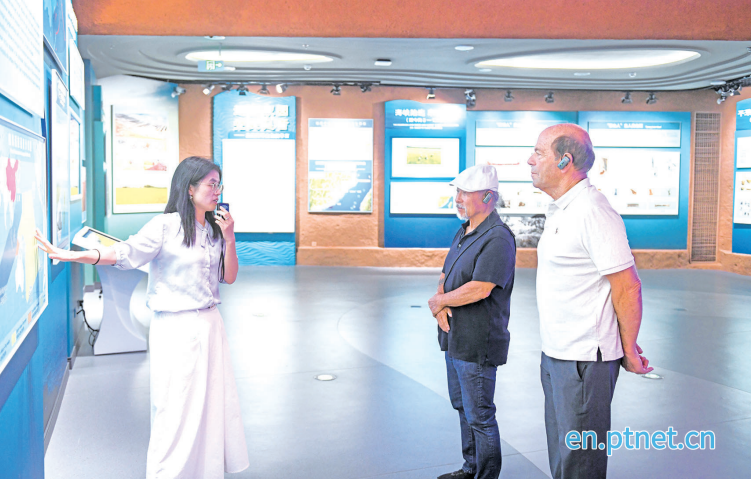
Steve Elkins (1st from the right) and others visit the Keqiutou Site Museum based in Pingtan.
"Pingtan's youth could be the next generation to uncover new truths about our shared maritime history," Elkins said, alluding to Pingtan's role as a hub for Austronesian cultural studies. "Just as ancient sailors set out from coasts like this, today's young people can continue that spirit of exploration."
Kong Yu, deputy director of the History and Art Editorial Department at Research Press—the book's publisher—announced the title has been a surprise hit, with a third printing already planned. She added future editions will include new insights shared at the Pingtan event, such as Elkins' latest observations.
"Publishing is about preserving knowledge and spreading ideas," Kong said. "This book isn't just about a historical debate—it's about inspiring people to think independently."
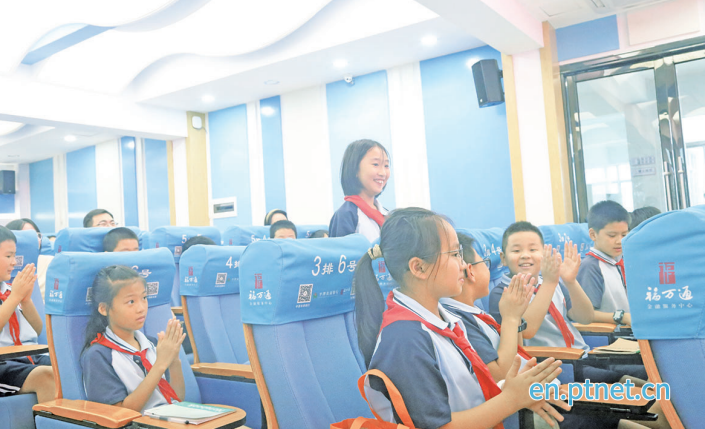
Young readers interact enthusiastically with author Danbagu.
The event included a Q&A session with local students, where Li stressed the importance of critical thinking in the study of history. "The value of researching theories like this isn't in finding a final answer," he said. "It's in teaching people to question, verify, and form their own opinions."
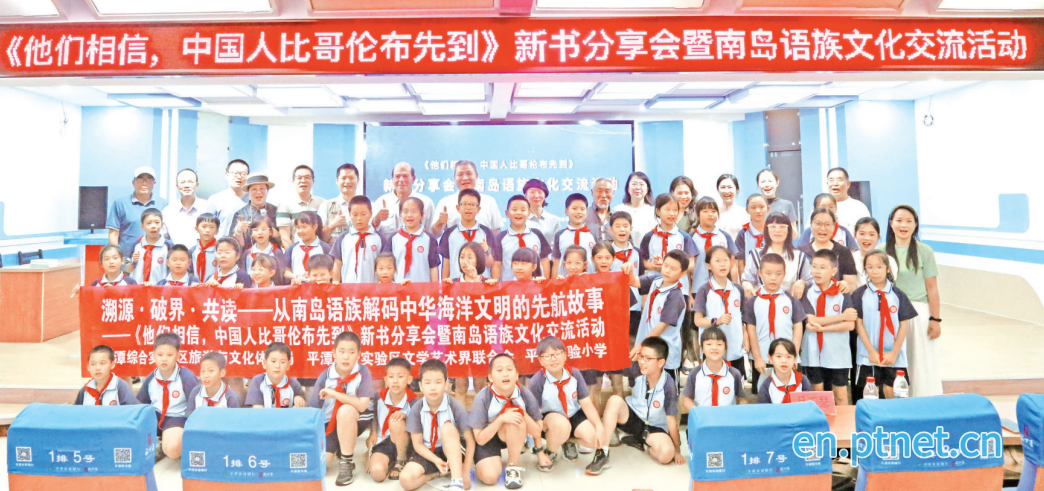
Group photo of selected readers and guests after the sharing session
Looking forward, Li revealed that his next project will bring the focus home, delving into Pingtan's own archaeological significance through sites like the Keqiutou Ruins-a site that offers clues about ancient maritime civilizations and their connections to the Austronesian peoples.

 Fujian Public Security Registration Code: 35012802000271
Fujian Public Security Registration Code: 35012802000271